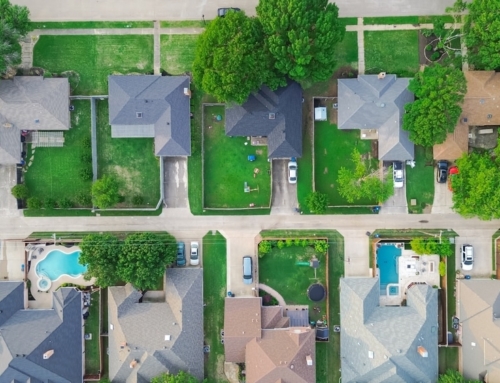If you’ve already left the workforce or are quickly approaching retirement, you might be considering moving to a new home. You might also be asking yourself if you should buy a home, or if renting might be a better option. The answer will depend on your personal circumstances and your local real estate market, as well as a number of other factors.
So how do you decide? Ask yourself the following four questions:
Why do you want to move?
Do you want to be closer to your grandkids? Are you trying to move farther away from your grown children who inconveniently stop by whenever they want to (without even a phone call)? Are you looking to downsize because you no longer need a lot of space? Your answers will help determine what you do next.
Where will you get the funds for your move?
If you buy a home, will you have to take money out of your retirement account to come up with a down payment? Taking funds from a qualified retirement account could be a big tax liability. In addition, taking a big chunk out of your retirement savings may mean running out of money more quickly in retirement than you would have if you hadn’t purchased a new home.
Planning to rent instead? You still need to ask yourself where you will get the money. Cash flow is extremely important during retirement. If you have to withdraw money from your retirement accounts in order to pay the rent, you are once again increasing the probability of running out of money. On the other hand, renting an apartment means your money isn’t tied up in a mortgage, so you may have more access to liquid funds.
How flexible do you want to be in retirement?
Renting and buying offer different levels of flexibility in retirement. If you choose to rent, you will definitely have more flexibility than if you buy—but it might come at a price.
If you decide to rent, you are building equity in someone else’s asset. You are also dealing with inflation, which often leads to higher rents. After your lease is up, your landlord could decide to increase your rent or make you move out altogether so he or she can get a higher rent from a new tenant. Both scenarios could land you in financial trouble if you can’t afford a higher rental rate.
Buying a home can be a way to guard against inflated rental rates, but it too has risks. You may not have any options if the house or location of your dreams turns out to be a nightmare a year later.
For example, a year after you buy your house you could find out you have the worst neighbors on the planet, or the county could decide to build a prison or airport in your backyard. If you have to move and home values have dropped, that underwater house could really hurt you financially. If you can’t move, you could spend your golden years fighting with your neighbors or county instead of enjoying your new home.
Do you really need to move?
Before you make a major decision about moving, remember: The grass is always greener on the other side of the fence—but you still have to mow it.
If you’re mostly content in your current home, you may want to avoid moving and instead update your kitchen or make some other improvements to make the space more enjoyable. If your mind is made up and you still want to move, though, just be sure to consider the risks and benefits.
You ultimately need to make your decision according to your own priorities. In the worst-case scenario, if you did a good job raising your kids, you could always move in with them.
Steve Repak is a CERTIFIED FINANCIAL PLANNER™ professional, CFP® Board Ambassador, and financial literacy speaker. He is also an Army veteran and the author of Dollars & Uncommon Sense: Basic Training For Your Money. Follow him on Twitter: @SteveRepak





